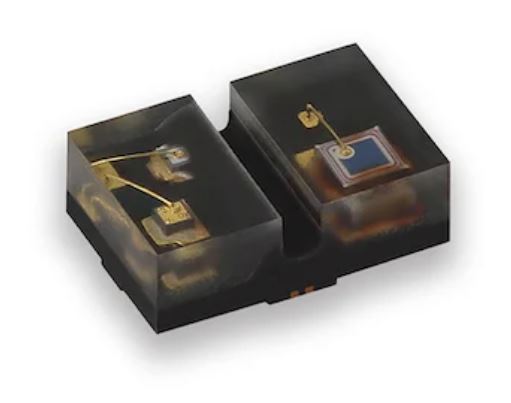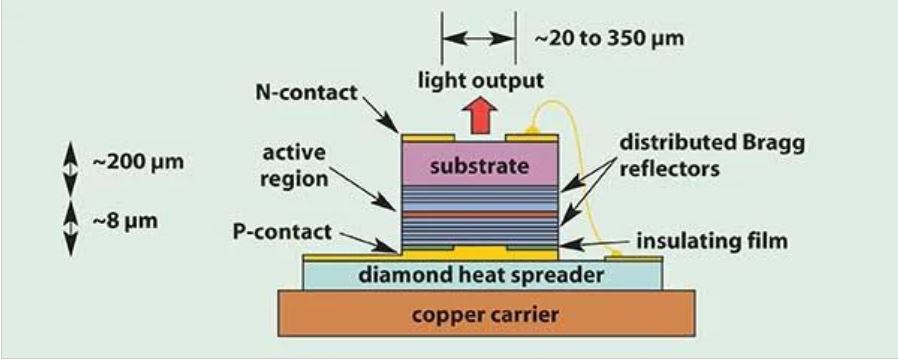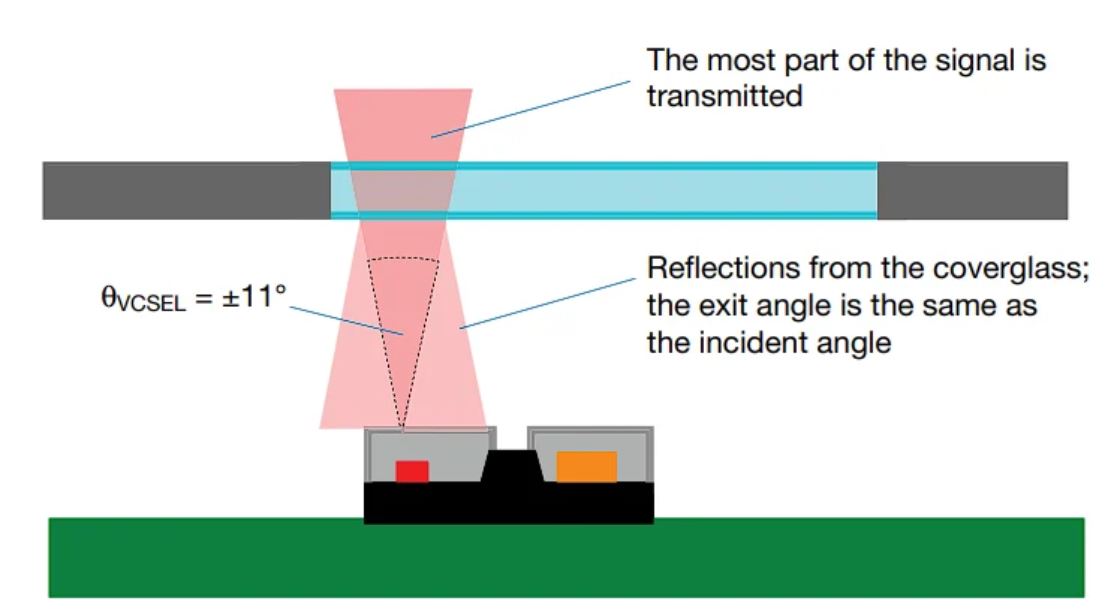Vishay's new optical sensor packs a vertical-cavity surface-emitting laser (VCSEL) and a silicon phototransistor in a 1.85 mm x 1.2 mm x 0.6 mm package.
Showing that big advancements can come in small packages, Vishay Intertechnology has introduced a new reflective optical sensor for a slew of applications. The new sensor builds on Vishay’s existing optoelectronics portfolio to offer designers a new option with critical performance and size improvements over previous generations.

The VCNT2030 offers a performance boost over previous generations in a smaller device package, paving the way for denser integration. Image used courtesy of Vishay
Optoelectronics help to remove moving parts and points of failure from systems. To enable new designs, Vishay’s latest sensor incorporates unique optical and electrical features that make it a contender for many sensing applications. This article examines the sensor's performance boost and gives readers a sense of the engineering involved in fitting more functionality into a smaller package.
Vishay's New Ultra-small IR Sensor
At the core of the newly released VCNT2030 is an IR emitter and sensor of a compatible wavelength. The emitter itself is a vertical cavity surface emitting laser (VCSEL) that imparts unique properties to the sensor. The emission angle is quite low at only 17°, resulting in a highly directive emitter that effectively increases the transmitted IR intensity.

The VCSEL uses multiple thin layers of semiconductor material to create an optical resonator where the outgoing light is transmitted nearly perpendicular to the surface, creating a narrow beamwidth. Image used courtesy of Photonics Marketplace
This narrow beamwidth allows a transparent cover to be placed between 0–2 mm away from the sensor, resulting in an overall smaller design and enabling denser integration (reportedly limited by the width of a human finger in touch-based applications). The decreased beamwidth also allows for smaller window diameters down to 3.1 mm at a distance of 1 mm from the sensor.
Vishay reports the VCNT2030 is more efficient than its older counterparts, with a current transfer ratio 40 times larger than the VCNT2020. In addition, the typical DC forward current to drive the IR emitter is between 5 and 15 mA, allowing for lower power systems.
A Useful Tool for Opto-Interaction
The reported specs for the VCNT2030 (datasheet linked) make it a contender for future optoelectric-based switches and buttons, especially as their sizes continue to shrink. The optical and mechanical design of Vishay's new sensor is said to prevent crosstalk and yield more accurate sensing.

When near the device, very little of the reflected light is scattered to the detector. When further away, however, the sensor detects the reflected light. Image used courtesy of Vishay
The visible gap between the emitter and detector, combined with the directive nature of the VCSEL, prevents crosstalk from skewing the analog output and creating false readings. This also allows for an overall smaller system, evidenced by the sensor's reduced size of 1.85 mm by 1.2 mm by 0.6 mm.
Although the sensor doesn’t come with a built-in IR pass filter, Vishay has already released some reference designs to help engineers design their own systems and circumvent any limitations of the sensor.
The Push for Denser IR Sensors
The VCNT2030 is currently available in sample and production quantities and is expected to fill an important gap in the Vishay optoelectronics portfolio as a small yet robust optical sensor for applications where space and density come at a premium. Especially in applications where only a handful of touch points are needed (a thermostat, for example), the VCNT2030 can offer a higher overall density for IR sensors.
TrendForce 2023 Infrared Sensing Application Market and Branding Strategies
Release: 01 January 2023
Format: PDF
Language: Traditional Chinese / English
Page: 164
|
If you would like to know more details , please contact:
|











